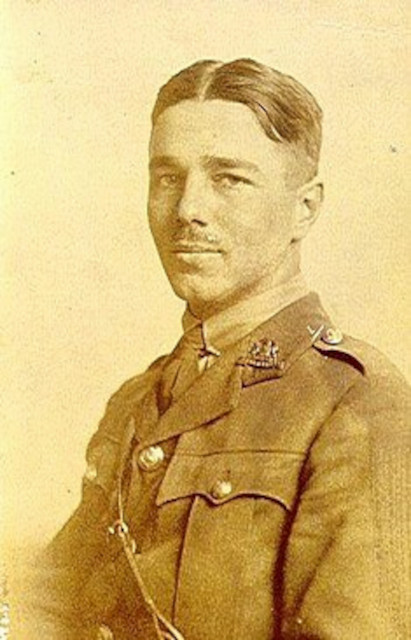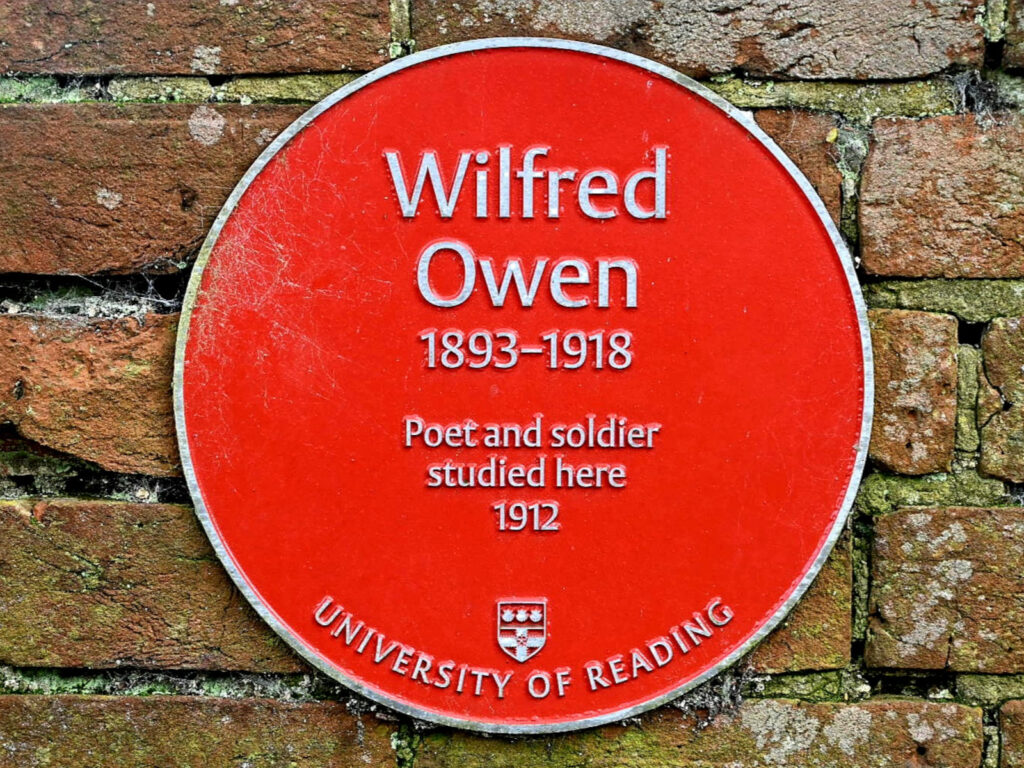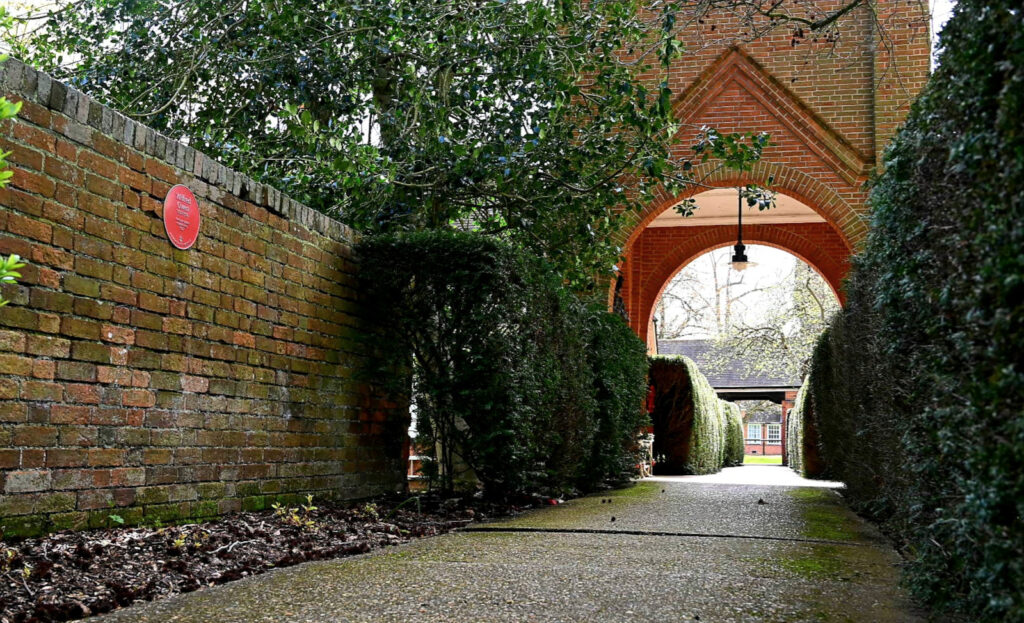A bit of background
Wilfred Owen (1893-1918) was one of the leading poets of the First World War and a soldier. He was killed in action on 4 November 1918, a week before the signing of the Armistice that ended the First World War, at the age of 25.
Owen was born on 18 March 1893 near Oswestry I Shropshire. He was educated at the Birkenhead Institute and at Shrewsbury Technical School. Failing to get the scholarship that he needed to attend the University of London, he worked as a lay assistant to the Vicar of Dunsden, near Reading. Lodging for free, he lived at Dunsden Vicarage from September 1911 to February 1913, during which time he attended botany classes at University College, Reading and, encouraged by Professor Edith Morley of the College’s English Department, took free lessons in Old English.
By May 1913 he had taken up lodgings at 67 South Street, Reading and a letter that he wrote shows that he took an active part in the cultural life of the town.
“Walked into Reading, went to Museum and joy of joys was shown all over Roman remains from Silchester. What a morning and what a museum!”
He sat the exam for the University College Reading scholarship, which he failed. During 1913 he worked as a private English and French tutor in Bordeaux, France. He returned to England after the outbreak of war.
After enlisting into the Artists Rifles on the 21st October 1915 he was commissioned in June 2016 into the Manchester Regiment. After recuperating from shell shock he returned to the Western Front in August 1918. In October 1918 he, along with his comrade 2nd Lieutenant Foulkes, was awarded the Military Cross (MC) for conspicuous gallantry and devotion to duty in an attack on the Beaurevoir-Fonsomme Line where, after assuming command – the company commander having been a casualty, Owen took control of a captured enemy machine gun, took scores of prisoners and provided cover fire for Foulkes. The award was not announced in the London Gazette until February 1919.
He was killed in action on the 4th November 1918 during the battle to cross the Sambre-Oise canal at Ors. 2nd Lt Foulkes, was who was wounded in the attack, said that Owen was last seen trying to cross the canal on a raft under very heavy gunfire. The day after his death the London Gazette announced he had been promoted to the rank of Lieutenant with effect from 4 December 2017, an announcement which had been severely delayed.
Wilfred Owen MC is named in the Reading University College memorial book and is amongst the nine staff and students added to the University’s War Memorial within the Clock Tower in 2018 to mark the 100th anniversary of the end of the First World War.
One of his best-known poems, Dulce et Decorum est, was written during the War but published posthumously in 1920.
More information about Owen Biography | The Wilfred Owen Association




